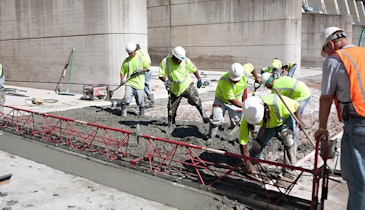Interested in Safety?
Get Safety articles, news and videos right in your inbox! Sign up now.
Safety + Get AlertsAm I my brother’s keeper? That was the first thing uttered by Cain after he killed his brother Abel in the book of Genesis in the Bible. It’s a question that’s been asked many times since and has a direct correlation to workplace attitudes toward safety. This sentiment is often presented in the phrase “that’s not my job,” which basically says the same thing.
When it comes to workplace safety, we’d certainly better be our brothers’ keepers. Since we spend on average eight-plus hours a day with each other and develop bonds over time, we have to be able to depend on our co-workers. We need to go the extra mile to look out for each other and speak up when something isn’t safe.
OSHA has some regulations that make it a requirement to keep a watchful eye on one another. These watchful positions are generally set up for high hazard situations and activities.
The positions include the competent person, confined-space attendant, work zone flagger and fire watch.
Competent Person
OSHA defines the competent person role as “one who is capable of identifying existing and predictable hazards in the surroundings or working conditions which are unsanitary, hazardous or dangerous to employees, and who has authorization to take prompt corrective measures to eliminate them.”
Situations where a competent person should be available include work zones, confined spaces, fall hazards, scaffold erection, cranes and trenching and excavation work. Generally, the competent person is authorized by the employer to ensure safety on a job site and has the expertise to recognize those hazards that need immediate attention and lastly can shut the job down until the hazard is corrected.
Confined-Space Attendant
When entry into a permit-required confined space is needed then OSHA requires that an attendant be present the entire time another employee is in the space. There can be several hazards or potential hazards present in a confined space and the primary role of an attendant is to watch the entrants and alert them when they need to leave the area due to a potential hazard. The attendant can also be responsible for calling emergency services when there has been an incident or employee that has succumbed to the hazards that might be present in the confined space. The attendant will also monitor the meter being used to ensure the atmosphere is safe.
Work Zone Flagger
Like the confined-space attendant, this responsibility can be a little mundane at times, but that does not mean it isn’t an important role in a work zone. In fact, it is the most important role at a work zone. Flaggers need to be highly trained because they are responsible for the safety of the entire work zone including fellow employees. They must also guide traffic through the work zone. Should there be a wayward vehicle, the flagger needs to be able to communicate to their fellow workers in a timely manner so that they can respond and get to a safe place. The flagger also needs to be able to move quickly, so this isn’t a position for someone with an injury or disability.
Fire Watch
The main responsibility of the fire watch person is to ensure that the area is safe from fire hazards. Generally, when another worker is conducting hot work, the fire watch is necessary. Welding, burning and grinding can produce fire related hazards. If there are any flammable substances within 35 feet of the hot work, then a fire watch is necessary. The fire watch is also responsible for making sure that firefighting equipment is ready and available should a fire start. At the end of the task, the fire watch needs to stay in the area for 30 minutes to ensure a fire doesn’t start after the work is completed.
Again, these are the OSHA-required positions that have us watching out for each other. However, there are many other reasons to watch your fellow employees to make sure safety is a priority every day. Don’t let complacency or apathy cause you to miss an opportunity to watch your co-worker’s back. Be willing to speak up because you might be saving a co-worker’s life, or at least preventing an injury from occurring.
When we are convinced that watching out for each other is the right thing to do, it’s easier. How would you feel if you didn’t speak up and your co-worker got seriously injured? Don’t let that be you. Always be your brothers’ and sisters’ keeper.





